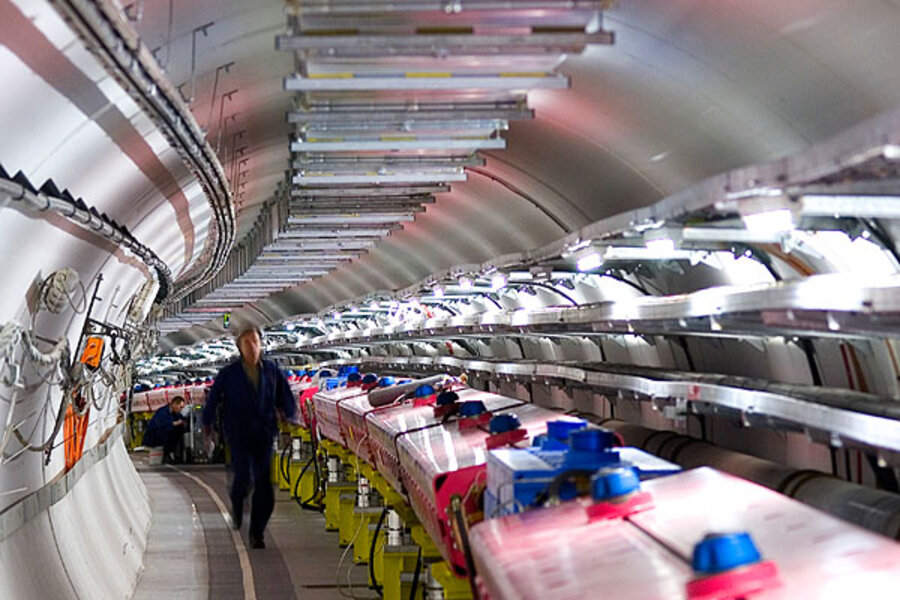Retest of neutrino speed suggests Einstein was right, after all
Loading...
Six months after physicists shocked the world by announcing they'd found particles seemingly traveling faster than light, the growing scientific consensus seems to be that the results were flawed.
Researchers at the ICARUS project in Italy have recreated an independent version of the original Switzerland-based experiment, called OPERA, and found that their particles traveled at a respectable, sub-light speed.
Though the results don't automatically disprove OPERA's findings, they add to most scientists' sense that the shocking finding was an anomaly.
"The evidence is beginning to point towards the OPERA result being an artifact of the measurement," Sergio Bertolucci, research director at the CERN physics laboratory that houses OPERA, said in a statement. [10 Implications of Faster-Than-Light Neutrinos]
In September, baffled physicists from the OPERA collaboration announced that they'd sent beams of particles called neutrinos from CERN, in Geneva, to a detector buried underground 454 miles (730 kilometers) away in Gran Sasso, Italy, and found that they arrived 60 billionths of a second sooner than light would have.
Such a finding is incredible, because the speed of light was thought to be a cosmic speed limit imposed by Einstein's special theory of relativity. The OPERA scientists were as surprised as anyone, and invited other researchers to scrutinize their results and recreate their experiment to help prove or disprove their findings.
Now ICARUS has, and the results suggest neutrinos might be more mundane than they briefly seemed.
"The ICARUS experiment has provided an important cross-check of the anomalous result reports from OPERA last year," said Carlo Rubbia, spokesperson for the ICARUS experiment. "ICARUS measures the neutrino's velocity to be no faster than the speed of light. These are difficult and sensitive measurements to make and they underline the importance of the scientific process."
ICARUS, like OPERA, tracks neutrinos beamed from CERN to Gran Sasso. ICARUS' detector is filled with 600 tons of liquid argon, in contrast to OPERA, which uses solid lead plates interspersed with photographic film.
Neutrinos are very difficult to detect because they have almost no mass and are neutrally charged, so they very rarely interact with other particles. All types of neutrino detectors rely on large masses of atoms in the hopes that some small fraction of neutrinos will collide with the nuclei of these atoms and release other particles that can be seen.
To further test the neutrino results, other experiments aim to do their own trials. Two more neutrino detectors at Gran Sasso called BOREXINO and LVD, as well as the MINOS experiment in Illinois, and the T2K project in Japan, will measure the speeds of neutrinos independently.
"It's important to be rigorous, and the Gran Sasso experiments, BOREXINO, ICARUS, LVD and OPERA will be making new measurements with pulsed beams from CERN in May to give us the final verdict," Bertolucci said. "In addition, cross-checks are underway at Gran Sasso to compare the timings of cosmic ray particles between the two experiments, OPERA and LVD. Whatever the result, the OPERA experiment has behaved with perfect scientific integrity in opening their measurement to broad scrutiny, and inviting independent measurements. This is how science works."
You can follow LiveScience senior writer Clara Moskowitz on Twitter @ClaraMoskowitz. For more science news, follow LiveScience on twitter @livescience.







